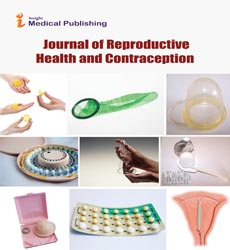Neurological Complications Observed in AIDS Patients
Vinam Park
Vinam Park*
Department of Neurology, Centre of Data Science, Monteria, Colombia
- *Corresponding Author:
- Vinam Park
Department of Neurology
Centre of Data Science, Monteria, Colombia
E-mail: vinpark@purdue.edu
Received Date: October 14, 2021; Accepted Date: October 19, 2021; Published Date: October 25,2021
Citation: Park V (2021) Neurological Complications Observed in AIDS Patients. J Contracept Stud Vol 6 No.2:10.
Years and years prior, it had been accounted for that gained insusceptible lack disorder (AIDS) was instigated by the disease with the human immunodeficiency infection subtype 1 (HIV-1) inside 10 years in up to 75% of cases. From that point forward, AIDS has been regularly portrayed as the most noticeably awful torment of humankind, including indeed, even schizophrenia, in view of its huge individual and monetary expenses around the world. In any case, presently the circumstance has changed. Nowadays HIV-tainted people are living significantly longer, due to on-going advances in compelling mix antiretroviral treatment (cART), which has significantly worked with the overall invulnerable recuperation or resistant protection of patients with immunosuppression. The arising chronicity of this sickness additionally causes expanding interest in the impacts of HIV on mind movement. Since the infection can go through the blood– mind boundary, to trigger neuroinflammation and resistant reactivity and to meddle with synaptic neurotransmission, constant HIV disease of cerebrum is commonly connected with an intellectual hindrance that reaches from gentle intellectual and engine challenges to serious HIV-related dementia, purported Neuro AIDS or HIV-related neurocognitive messes (HAND). HAND now ordinarily shows as milder unsettling influences of memory and psychomotor speed, handling speed, chief capacity. Albeit the levels of weakness of HAND are unpretentious, HAND may influence day by day work, antiretroviral adherence, and nature of life.
Since HAND are clinical conditions which would be analysed by barring elective causes utilizing research centre tests and standard clinical neuroimaging, the absence of a helpful neuroimaging biomarker for HAND is as yet a significant shortcoming in clinical practice. A few examinations have researched neurophysiological anomalies in HIV subjects as uncovered by occasion related possibilities (ERPs) going with attention and prompt memory processes. Albeit strange ERPs have been displayed in asymptomatic HIV subjects and HAND patients, those results were conflicting one another.
A few lines of mental proof have shown that passionate handling and acknowledgment may be weakened by HIV contamination, played out a cross-sectional single associate concentrate sequentially enlisting HIV-positive and HIV-negative subjects who were submitted to a Facial Emotion Acknowledgment Test, which surveys the capacity to perceive six fundamental feelings (disdain, outrage, dread, satisfaction, shock, pity). They found an essentially lower execution of HIV-positive subjects than solid controls in perceiving dread and the relationship between their neurocognitive presentation and exactness of perceiving satisfaction. They conjectured that dread acknowledgment shortage in HIV-positive patients may be identified with the hindered work of neural organizations in the front striatal framework without utilizing any objective measures, for example, utilitarian or electrophysiological cerebrum imaging strategies.
In this issue of Clinical Neurophysiology, detailed obviously and unbiased that HIV-positive subjects have diminished intellectual cycles related with emotional changes. Here it planned to explain the instruments through which emotional changes can adjust intellectual cycles in HIV-contaminated people. They embraced the late certain potential (LPP) to measure attention handling to inwardly charged visual boosts in HIV-positive contrasted with HIV-negative females. While HIV-negative females showed an improved LPP to the genuinely bad pictures, the HIV-positive females didn't show any distinction in the LPP measure between picture classifications. These ERP discoveries recommend that HIV-positive females may show the attention impedances to sincerely bad improvements firmly connected to a deficiency of full of feeling preparing. We can accept that ERP may be a reasonable and touchy organic marker of intellectual deficiency in HIV-tainted people
Open Access Journals
- Aquaculture & Veterinary Science
- Chemistry & Chemical Sciences
- Clinical Sciences
- Engineering
- General Science
- Genetics & Molecular Biology
- Health Care & Nursing
- Immunology & Microbiology
- Materials Science
- Mathematics & Physics
- Medical Sciences
- Neurology & Psychiatry
- Oncology & Cancer Science
- Pharmaceutical Sciences
